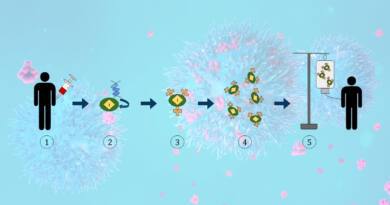Insomnia Simplified: Found In The Stillness Of Night
Are You Waking Up Between 1 and 3 AM? This Could Indicate a Hidden Health Issue
Have you ever found yourself wide awake in the stillness of the night, clocking in those elusive hours between 1 and 3 am?
It’s a curious phenomenon that many experience, leaving them pondering the reasons behind such nocturnal awakenings. The question lingers: what causes this phenomenon?
Waking up in the middle of the night on a regular basis and struggling to return to slumber is far from typical. Experts suggest that you might be experiencing a lighter sleep cycle coupled with increased stress levels, indicating the presence of insomnia—a prevalent condition that challenges individuals in both falling asleep and maintaining restful slumber.
The effects of insomnia ripple through various aspects of life, influencing mood, energy levels, overall health, and even work performance.
The Cleveland Clinic reports that insomnia affects a staggering 10-20 percent of the global population, with the prevalence soaring to 40 percent among older adults in just the past three years.
Insomnia can disrupt your sleep cycle, leading to frequent awakenings throughout the night. This condition often leaves individuals tossing and turning, struggling to find rest as their minds race with thoughts or worries.
The result is a fragmented sleep experience, where the tranquillity of night is interrupted, leaving many to grapple with the challenges of sleeplessness.
According to medical professionals, experiencing difficulties in falling or remaining asleep for three or more nights each week over a span of three months, accompanied by daytime repercussions, qualifies as chronic insomnia.
Several factors identified by the Mayo Clinic can contribute to the onset of insomnia, including:
Chronic stress can take a toll on your body, triggering the sympathetic nervous system. This response often leads to unexpected awakenings in the middle of the night, leaving you startled and restless. Medical professionals suggest that it could potentially change your blood pressure levels and elevate your heart rate.
When stress and anxiety levels rise, they can lead to a cascade of challenges, impacting not just your mental well-being but also the functioning of essential organs in your body.
As the years pass, the journey of life unfolds in remarkable ways. Each stage brings its own set of experiences, challenges, and wisdom. The process of growing older is not merely a passage of time; it is a rich tapestry woven with memories, lessons, and the beauty of resilience. Embracing this natural progression allows individuals to reflect on their past while looking forward to the future, celebrating the unique stories that shape who they are. In a world that often idolises youth, it is essential to recognise the value and grace that come with age, transforming perceptions and inviting a deeper appreciation for the richness of life at every stage.
The influence of age on your daily sleep routine is significant. As the years pass, specialists indicate that the sleep cycle undergoes a significant transformation, often influenced by medication. Not only does it diminish the quality of your sleep, but it also alters your sleep and wake-up times, often leading to multiple awakenings throughout the night.
Medicine
For many individuals grappling with insomnia, the quest for a good night’s sleep can be complicated by certain medications. Common culprits that may disrupt nighttime rest include antidepressants, beta-blockers, corticosteroids, over-the-counter cold remedies, diuretics, and antihistamines.
Understanding these potential sleep disruptors is crucial for those seeking relief from sleepless nights.
If you find yourself waking up in the middle of the night, it’s essential to consult with your doctor about the possibility that a medication may be the culprit.
In addition to insomnia, experts highlight a variety of health conditions that may cause you to awaken during the night, including:
Gastro-oesophageal reflux disease, commonly known as GERD, is a chronic condition that affects millions of individuals worldwide. Characterised by the backflow of stomach acids into the oesophagus, this ailment can lead to a range of uncomfortable symptoms, including heartburn, regurgitation, and difficulty swallowing. Understanding the causes and management options for
GERD manifests as heartburn or indigestion, creating discomfort that many experience.
Arthritis is a condition that affects millions of individuals worldwide, characterised by inflammation and pain in the joints. This chronic ailment can significantly impact daily life, making even simple tasks challenging. Understanding the various types of arthritis, their symptoms, and potential treatments is essential for those affected. With ongoing research and advancements in medicine, there is hope for improved management and relief for those living with this condition.
The condition results in inflammation and discomfort within the joints, creating a challenging experience for those affected.
Depression is a complex and often misunderstood condition that affects millions of individuals worldwide. It can manifest in various ways, impacting not only mental health but also physical well-being. Understanding the nuances of this condition is crucial for fostering empathy and support for those who are struggling. As we delve deeper into the topic, it becomes clear that addressing depression requires a multifaceted approach, combining awareness, treatment, and community support.
Depression, a complex mood disorder, manifests through profound feelings of sadness, loss, or anger, significantly impacting one’s daily life.
Neuropathy is a condition that affects the nerves, leading to a range of symptoms that can significantly impact daily life. It often manifests as pain, tingling, or numbness, particularly in the extremities. Understanding the underlying causes and exploring treatment options is essential for those affected by this condition. With advancements in medical research, new therapies and management strategies are emerging, offering hope to individuals seeking relief from neuropathic symptoms. Awareness and education about neuropathy can empower patients to take charge of their health and navigate their journey towards recovery.
This condition manifests as a tingling sensation in the arms and legs, leaving many to wonder about its underlying causes and implications.
The condition of an enlarged prostate is one that many men may face as they age. It can lead to a variety of symptoms that impact daily life, making it a topic of significant interest and concern. Understanding the causes, symptoms, and potential treatments is essential for those affected, as well as for their loved ones. Awareness and education about this common health issue can empower individuals to seek the appropriate care and support they need.
An enlarged prostate often leads to a heightened sense of urgency when it comes to urination, a common concern for many men.
Menopause is a significant phase in a woman’s life, marking the end of her reproductive years. This natural biological process brings about various changes, both physically and emotionally. Understanding menopause is essential for navigating this transition with confidence and grace. From hot flashes to mood swings, each woman’s experience is unique, making it crucial to seek support and information during this time. Embracing this new chapter can lead to empowerment and a renewed sense of self.
For women over the age of 45, the journey through menopause can often bring about challenging symptoms such as night sweats and hot flashes.
Discover the secrets to achieving a restful night’s sleep. Unlock the keys to tranquillity and embrace the serenity that comes with peaceful slumber. Explore the essential tips and techniques that can transform your nighttime routine, ensuring you drift off into a deep, rejuvenating sleep. Say goodbye to restless nights and hello to a world of calm and comfort as you embark on your journey to better sleep.
Experts suggest that overcoming disruptions hinges on achieving quality nighttime sleep through the following methods:
- Establishing a consistent bedtime and waking up at the same hour each morning can work wonders for your overall well-being.
- Transform your bedroom into a sanctuary—think comfort, darkness, and tranquillity.
- Make sure you are sufficiently drowsy before going to bed, and contemplate implementing a relaxing evening routine that could involve engaging in meditation or reading a good book.
- It’s wise to disconnect from screens before settling down for the night.
- Incorporating regular exercise into your daily life can also enhance your sleep quality.
- Lastly, steer clear of caffeinated drinks as the day winds down to promote a more restful night.
- Dine at least four hours prior to bedtime for optimal rest.
- Stop smoking.

Attention readers: This piece serves as a source of information only and should not be considered a replacement for professional medical guidance. It’s essential to consult your physician whenever you have enquiries regarding a medical condition. Your health is paramount, and professional guidance is key to understanding your concerns.
Disclaimer: The WFY website aims to share experiences, opinions, and information on various topics. However, it is important to note that the author of this blog does not possess any professional authority or expertise, especially in subjects related to health, medical advice, or legal matters. The information provided on this website is based on personal experiences, research, and general knowledge. While we strive to provide accurate and up-to-date information, we cannot guarantee the completeness, reliability, or accuracy of the content. Therefore, any action you take based on the information found on this blog is at your own risk. The contents of this blog should not be considered a substitute for professional advice or consultation from experts in the respective fields. If you require specific advice or assistance, we strongly recommend consulting with a qualified professional. The WFY (website) and its author will not be liable for any errors, omissions, or any losses, injuries, or damages arising from the use or reliance on the information presented on this blog. It is your responsibility to verify any information obtained from this blog and to use it at your own discretion. Please note that the opinions expressed in the articles and comments on this blog are those of the respective authors and do not necessarily reflect the views of the website owner or any associated individuals. By using this website, you acknowledge and agree to the above disclaimer. If you do not agree with this disclaimer, please refrain from using this website.




